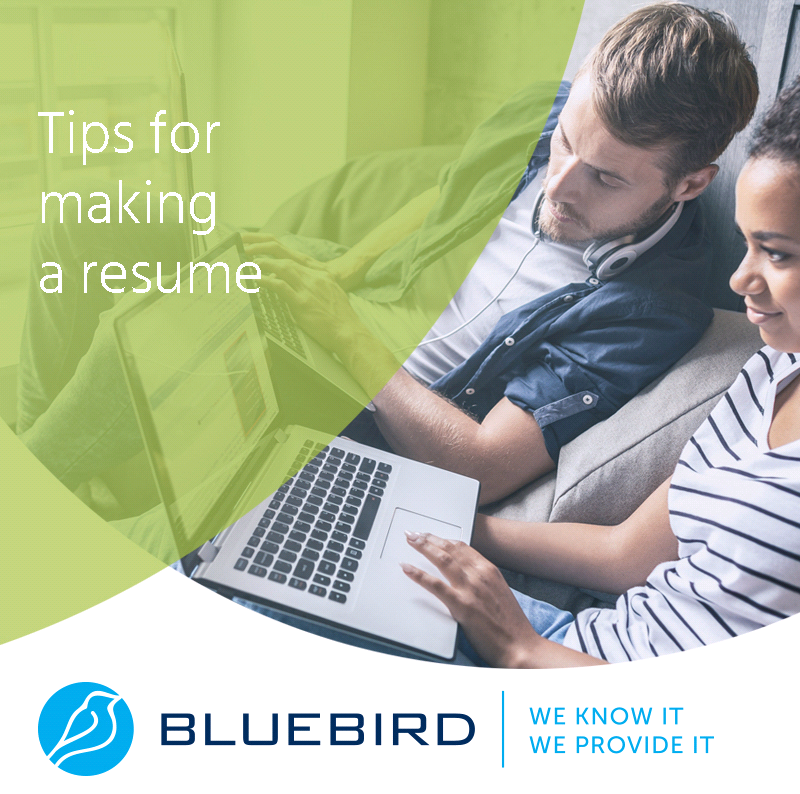A strong cover letter is one of the most important parts of a successful application. How do you write an effective cover letter? Learn more!
More...
When applying for a position, the company frequently requires a cover letter to accompany the resume. In fact, you may already fulfill this requirement when applying to college, university, or even a scholarship. As a result, you cannot get away without writing a cover letter! While many people dislike writing them, a cover letter can be advantageous when applying for a position. By supplementing your resume with a letter, you can demonstrate why they should choose you over the other applicants.
What is a cover letter?
A cover letter is much more than a few generalities and superhero adjectives describing how you are the "ideal candidate" for the job. While your CV focuses on your career, your motivation letter focuses on why you want to work for the company and what relevant work experience you've had previously. You can write about yourself, your goals, and your interest in the position or company! Go for it!
Is it necessary to write a cover letter?
I believe it is.
I frequently conduct interviews with candidates interested in working for Bluebird. Nobody writes a cover letter. However, those who write it and send it to me can rest assured that I will read it and learn about their thoughts.
Consider this! How would you feel if one of twenty applicants took the time to write down why they want to work for or with your company? Curiosity? Would it be pleasant?
Personally, I've found that a genuine, well-written cover letter can make or break the outcome of an interview even before it occurs. Why? Because when you write a cover letter, you are researching the company, the position, the individuals who will be conducting the interview, and the information you need to know about them. Website of the business, Facebook, LinkedIn, and Instagram, among others. You can get information about the company and the person from everywhere.
If you take the time to really research everything and then write your cover letter, you will already know more about the company than other applicants at this point. After writing the cover letter, you'll have a firm grasp of why you want to work for that company. It's clearer because you can't include confusing ideas in a cover letter. The letter itself will assist you in articulating precisely what you desire.
However, it is critical that you write a cover letter only if you are seriously interested in working for the company. Additionally, include only those ideas in the letter that you are serious about and feel compelled to express. Otherwise, it is pointless.

What is the purpose of a cover letter?
The purpose is to demonstrate who you are and what makes you "different" from other applicants. The other goal is (because this is a unique form of self-marketing) to capture the HR colleague's attention and compel them to call you immediately.
Remember that businesses are not only looking for experts in their field; they are also looking for people who genuinely want to work there, who can identify with the organization's goals and culture, and who are eager to get started!
Scope and style
Your cover letter should not exceed one page in length. The interviewer may be reluctant to read any further. However, a one-page letter will almost certainly win their approval, and it will convey to them the impression that you understand your limitations and can express your thoughts succinctly and clearly.
It can be significantly more informal in tone than a CV. In terms of content, a cover letter is also a letter of motivation, written in a narrative, storytelling style. Of course, this is not a pompous and tedious monologue that transcends all boundaries, but a concise but loosely phrased description.
The text should not be overly friendly, but it should also avoid excessively formal language!
Structure of the cover letter
The cover letter basically consists of 4 parts.
1. Contact details
This section contains your personal information (name, phone number, and email address) as well as the data of the recipient. I recommend that you enter your social media accomplishments only if you are certain that they will benefit you if you look at the interviewer. If you're not sure, I wouldn't recommend it. However, if you believe "I am who I am," and "accept me 100% the way I am," don't hesitate to include your contact information (Facebook, LinkedIn, Instagram, etc.) in your contact information.
Be sure to include the name of the position in the contact information so that the reader knows which job opportunity is.
2. Introduction
In the introduction section, write about yourself, your experience, your competencies, and indicate where you encountered the job posting.
3. Explanation
Write in detail what you think about the company, the job, why you want to work for that company. Be personal, be honest, and write well! Make the person reading your cover letter feel what you feel. If you are enthusiastic, write in such a way that your enthusiasm is palpable. Put yourself in it, physically. Believe me, you can accomplish great things if you can show who you are!
Make an effort to be specific about the skills you bring to the position or what makes you deserving of selection. Provide very specific examples demonstrating how you fit into the organization. Mention pertinent past tasks and projects. Indicate the corporate values that you profess to embrace.
4. Conclusion
Make a note of the conclusion you reached, your objectives, and your desires! Closing remarks include acknowledgments.
Remember! One of the secrets of a good motivation letter and thus of a successful application is to write it tailored to the position and characteristics of the applicant and the expectations associated with it. The letter you write can only stand out from the rest if you put it purposefully, showing a part of your personality as well.
Research, creativity, honesty
However, writing a cover letter requires some prior research, creativity, and complete honesty.
How can you write a really percussive cover letter? We show the main aspects!
1.
Learn about the company where you wish to work and find out the person's name who will read your letter so you can address it personally!
2.
Check out the company's website, the calling for tender, and then highlight the three most critical requirements for the position. In your cover letter, explain why you are the best candidate.
3.
Demonstrate - using personal examples if necessary - that you understand the company's credo and core values!
4.
Demonstrate with specific reasons why you desire to continue your professional career with the company!
5.
Always write the truth; false information will always come to light, bringing with it consequences!
Before you send it
You have not completed the motivation letter with the point at the end of the final sentence. You are fine if you let the text “cool down” and only pick it up again the next day. What you should pay special attention to is that the text is grammatically and stylistically correct and well written!
The look of the motivation letter should be perfect! I know it may sound strange, but as a leader, I get a lot of text, spreadsheets, and documents that my colleagues make. At first glance, I see how it looks. If the document looks cluttered, I immediately return it to the sender. There is a point at which I am unconcerned with the content. It may be sad, but it is. Accordingly, create a cover letter that you are happy to read to the person to whom you wrote.
Feel free to ask someone to review the text. Additionally, you should send it to a friend or acquaintance to get more feedback. Believe me, an outside perspective will benefit you. By the time you are finished, you may have read it several times and missed some obvious errors.
Free downloadable cover letter sample 2022 - IT
Summary
The purpose of the cover letter is to provide insight into the applicant's experience, commitment, goals, and personality, in addition to the professional competencies listed in the CV and career path presented. A strong cover letter follows a sincere, written according to a specific pattern, tailored to the advertised position and company. And there you have it! It's the only way to make sense; never forget that!
And finally: cover letter tips from Maastricht University




